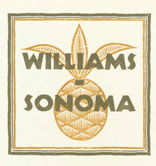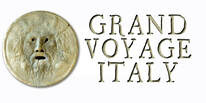 In the centuries before the iconic Bialetti Moka pot, people drank the new beverage in coffeehouses, an idea that started in Constantinople around 1550, but also spread to Mecca, Damascus and Cairo. Although David ibn Abi Zimra (a Cairo rabbi) ruled in 1553 that Jews could drink coffee prepared by a non-Jew, he also warned against patronizing public coffeehouses and suggested that instead, they have their coffee deliver to their homes--especially due to its medicinal use. Initially, in the 15th century, the drink quickly spread throughout the Ottoman Empire, enjoyed with large amounts of sugar. Jews and Muslims alike found that it helped them stay awake and alert for nightly prayer services. For Muslims, it took the place of forbidden alcoholic beverages. For the Jews, its adoption was tentative with rabbis debating whether it was Kosher, what blessing it required or whether it was actually a medicinal drug. Coffee in Italy had a slow start, partly due to it being declared a Drink of the Devil and outlawed by the Catholic church, and later, because it was a very expensive drink for the elite. The Church considered it as being "the bitter invention of Satan", and also bemoaned of its links to Islam. It wouldn't be until 1603 when Pope Clement VIII tasted--and liked--coffee and gave the drink full absolution from its sins. This helped open the floodgates for coffee in Italy and the rest of Europe. In 1632, the Jews of Livorno--a port city that was given over to the Italian Jewish population which became a center of Mediterranean trade--imported the first coffee into Italy and then opened the first coffeehouses (Bottega del Caffè). By 1624 and 1650, large shipments were shipped to Venice and by 1683, the first coffeehouse in Venice opened. In researching this article, I actually discovered that in 1766, an ancestor with my family name, Beniamino Finzi (an Italian Jew) was given management of a coffeehouse in Livorno. He managed to get the Jewish leaders to rescind a law forbidding games of chance in coffeehouses frequented by Jews. He was the first Jew to be granted a permit to allow gambling with card and board games in a coffeehouse. From this time on, a Jew could only run an "entertainment room" for gambling only if they also served coffee! Coffee was becoming mainstream.... within 200 years of the first sip being tasted in Italy, the craving for coffee had spread throughout Europe and even into the New World. --Jerry Finzi |
Archives
May 2024
Categories
All
|



